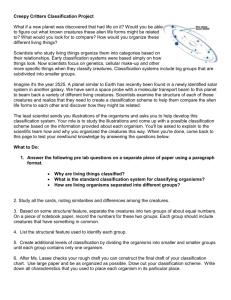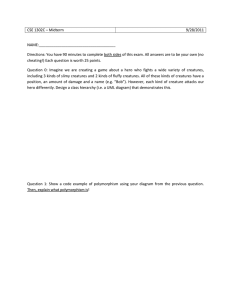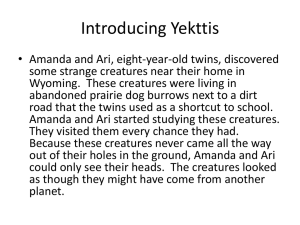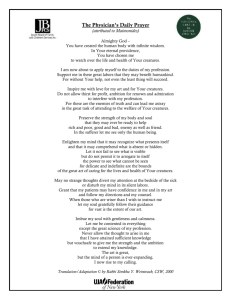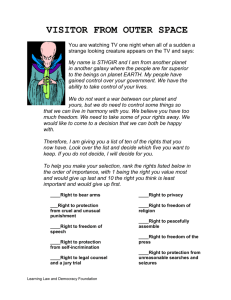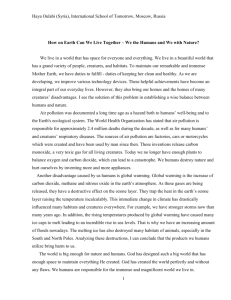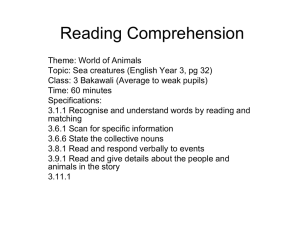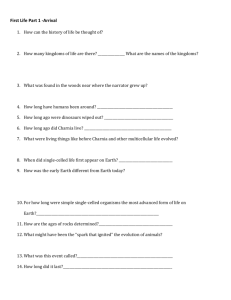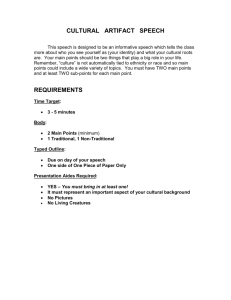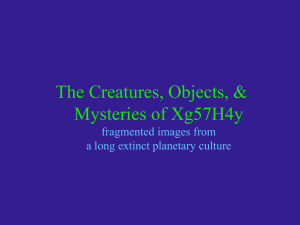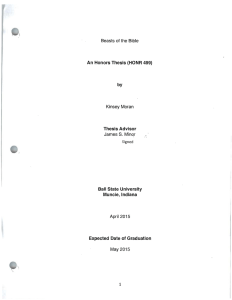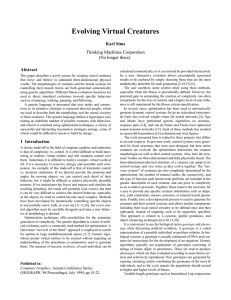Introduction to the Propers and Collects Honoring God in Creation
advertisement
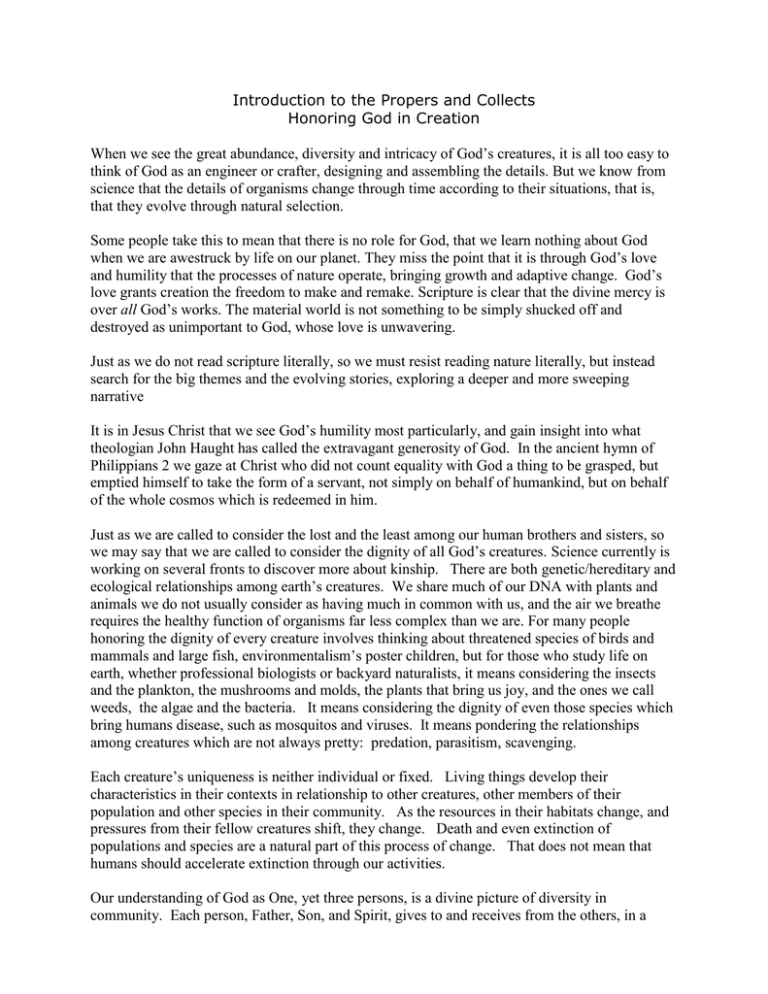
Introduction to the Propers and Collects Honoring God in Creation When we see the great abundance, diversity and intricacy of God’s creatures, it is all too easy to think of God as an engineer or crafter, designing and assembling the details. But we know from science that the details of organisms change through time according to their situations, that is, that they evolve through natural selection. Some people take this to mean that there is no role for God, that we learn nothing about God when we are awestruck by life on our planet. They miss the point that it is through God’s love and humility that the processes of nature operate, bringing growth and adaptive change. God’s love grants creation the freedom to make and remake. Scripture is clear that the divine mercy is over all God’s works. The material world is not something to be simply shucked off and destroyed as unimportant to God, whose love is unwavering. Just as we do not read scripture literally, so we must resist reading nature literally, but instead search for the big themes and the evolving stories, exploring a deeper and more sweeping narrative It is in Jesus Christ that we see God’s humility most particularly, and gain insight into what theologian John Haught has called the extravagant generosity of God. In the ancient hymn of Philippians 2 we gaze at Christ who did not count equality with God a thing to be grasped, but emptied himself to take the form of a servant, not simply on behalf of humankind, but on behalf of the whole cosmos which is redeemed in him. Just as we are called to consider the lost and the least among our human brothers and sisters, so we may say that we are called to consider the dignity of all God’s creatures. Science currently is working on several fronts to discover more about kinship. There are both genetic/hereditary and ecological relationships among earth’s creatures. We share much of our DNA with plants and animals we do not usually consider as having much in common with us, and the air we breathe requires the healthy function of organisms far less complex than we are. For many people honoring the dignity of every creature involves thinking about threatened species of birds and mammals and large fish, environmentalism’s poster children, but for those who study life on earth, whether professional biologists or backyard naturalists, it means considering the insects and the plankton, the mushrooms and molds, the plants that bring us joy, and the ones we call weeds, the algae and the bacteria. It means considering the dignity of even those species which bring humans disease, such as mosquitos and viruses. It means pondering the relationships among creatures which are not always pretty: predation, parasitism, scavenging. Each creature’s uniqueness is neither individual or fixed. Living things develop their characteristics in their contexts in relationship to other creatures, other members of their population and other species in their community. As the resources in their habitats change, and pressures from their fellow creatures shift, they change. Death and even extinction of populations and species are a natural part of this process of change. That does not mean that humans should accelerate extinction through our activities. Our understanding of God as One, yet three persons, is a divine picture of diversity in community. Each person, Father, Son, and Spirit, gives to and receives from the others, in a community of exchange we call love. What is true of God may then be seen to be true of the community of life which God has loved into being and sustains. Each creature has its dignity, in life and death, in struggle and in beauty, and all in their diversity, including human beings, are held in community with one another. There is no doubt that human beings have changed the earth’s cycles, surface and creatures by our activities. We have managed and bred for our use and enjoyment some plants and animals, and destroyed the habitats of others. We have extracted minerals, fossil fuels and soils, and been careless with our use of extracted water. We have preserved some biomes for their scenic beauty, but ignored the ecological services provided by others. We have trawled the bottom of the seas, and used them as a trash repository. A growing and increasingly urban population’s hunger for food, clothing, shelter and fuel are taking their toll, while efforts continue to slow the loss of traditional rural wisdom about conservation and creation care. Human migration has fostered the spread of invasive species, displacing native species, just as human migrants have often displaced indigenous peoples. Scientists and activists may disagree about what is the greatest threat to human survival on the planet. Should the scarcity of water for drinking and sanitation be our biggest concern, or the challenge to feed a hungry world in an ecologically sustainable way? And which of our excesses put the whole planet in the greatest peril? Is it climate change or the loss of biodiversity which poses the greatest threat to the resilience of life on earth? Ecologists understand that while entry points for concern and action vary, all these issues are interrelated. In agriculture, to take an example from our managed environment, resilience in the face of climate change will depend on better stewardship of water and increased preservation of the diversity of seed stock available for developing improved crops, at the same time that those engaged in agriculture continue to assess their contribution to greenhouse gases, polluted waste water and soil erosion, and how all these can be decreased. There have been and will continue to be unintended consequences for our environment in due to our choices and behaviors, but study and prayer can help us to become more conscious of human impact on our planet. As we consider the risen and ascended Christ drawing all things to their perfection in himself, drawing the cosmos into the heart of God in that process the Eastern Church calls deification, we find reason for hope and impetus for the renewing and reconciling of our relationships within the creation of which we are a part.
